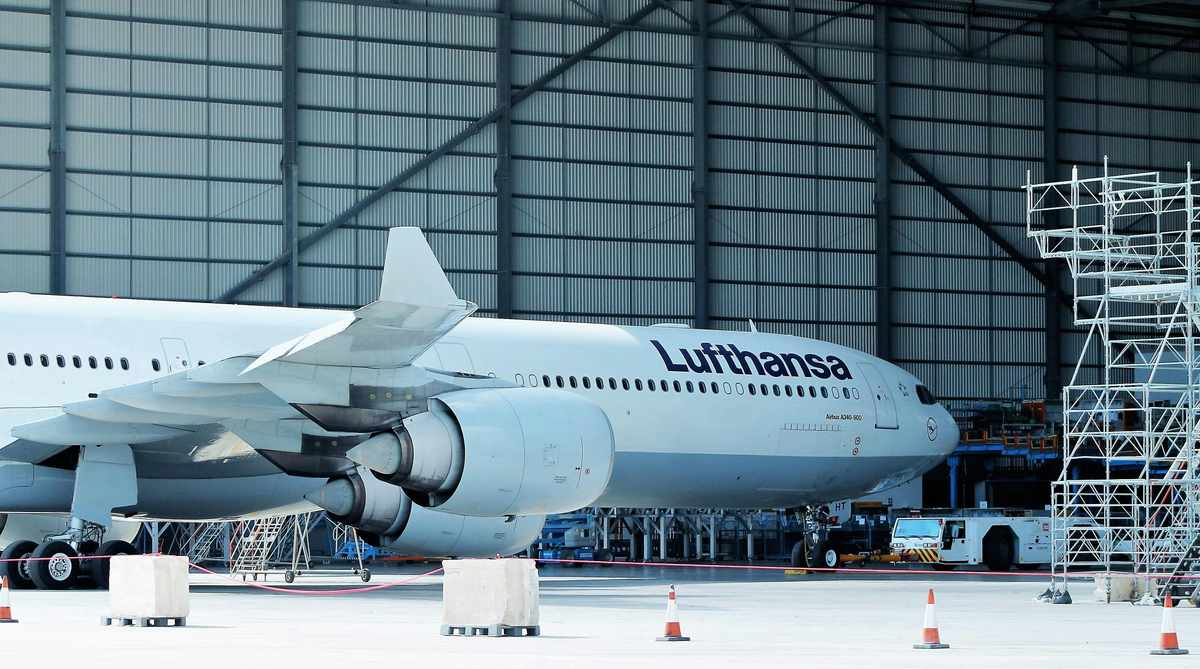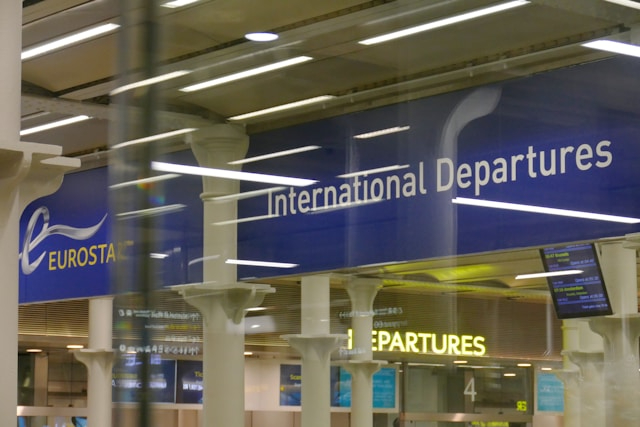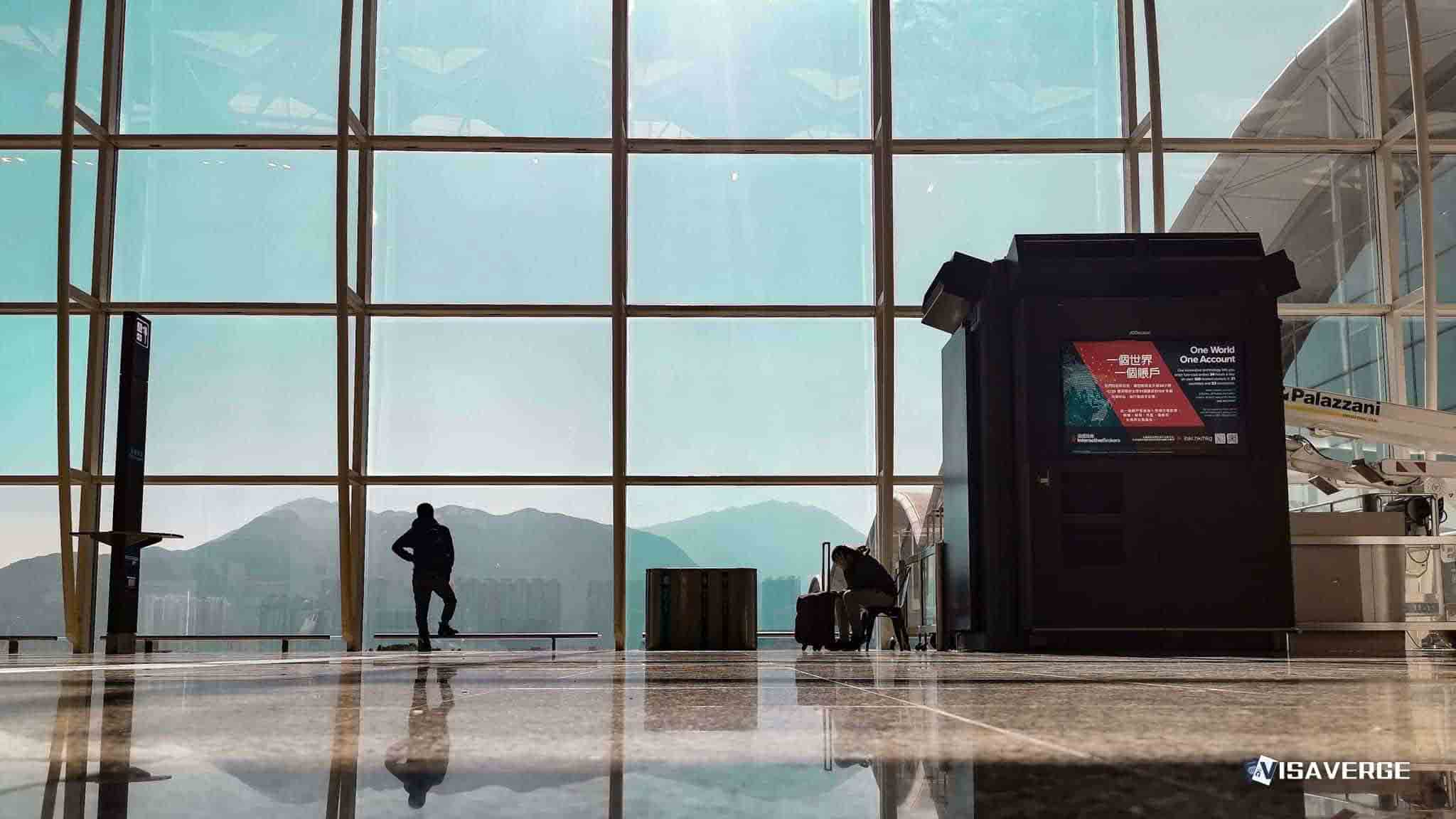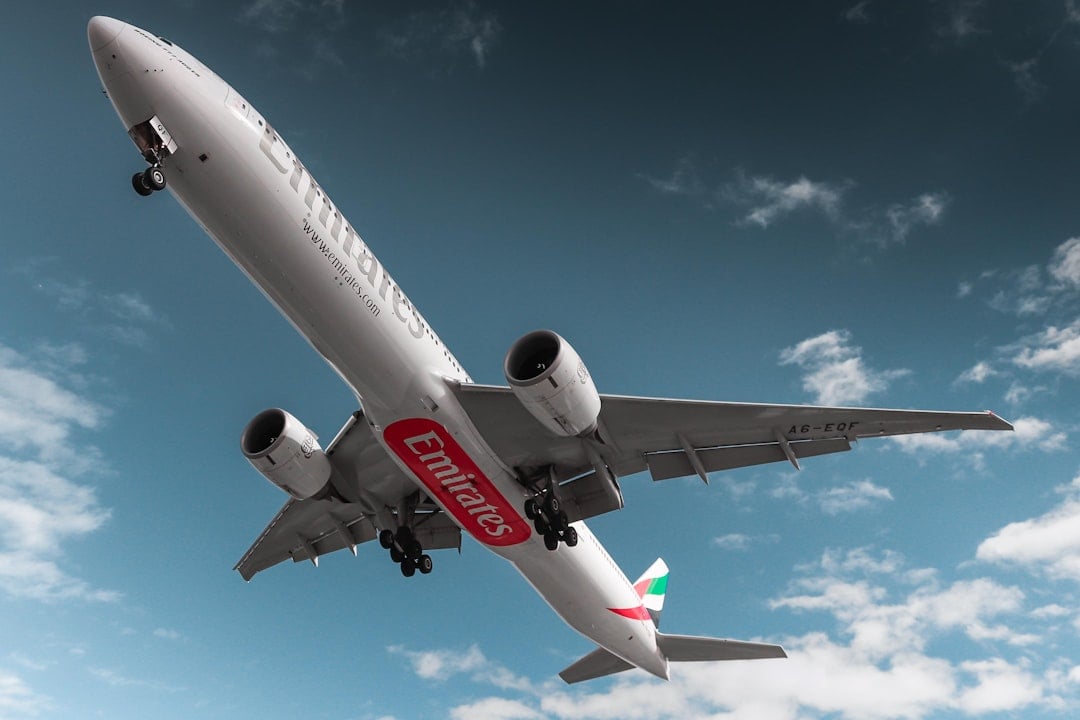Key Takeaways
• On June 17, 2025, Moscow court nationalized Domodedovo Airport, transferring 100% shares to the Russian state.
• Owners Dmitry Kamenshchik and Valery Kogan lost control due to illegal foreign ownership and offshore schemes.
• Rosaviatsia now operates the airport; this signals increased Russian state control over strategic assets since 2022.
On June 17, 2025, the Moscow Region Arbitration Court issued a landmark ruling to nationalize Moscow’s Domodedovo Airport, one of Russia’s busiest and most important international transport hubs. The court ordered the immediate transfer of 100% of shares in DME Holding LLC—the company that owns and operates Domodedovo Airport and its 25 subsidiaries, valued at over 1 trillion rubles (about $12.7 billion)—to the Russian state. This decision marks the largest state takeover of a major Russian transport asset in recent years and is a clear sign of the government’s ongoing campaign to bring strategic industries under tighter state control.
This move is not just about changing who owns the airport. It has wide-reaching effects for the airport’s owners, employees, airlines, passengers, and especially for foreign investors who are watching Russia’s business climate with growing concern. The court’s order is to be carried out immediately, and as of now, it is not clear if the owners can appeal the decision. Domodedovo Airport’s management has not made any public statements since the ruling.
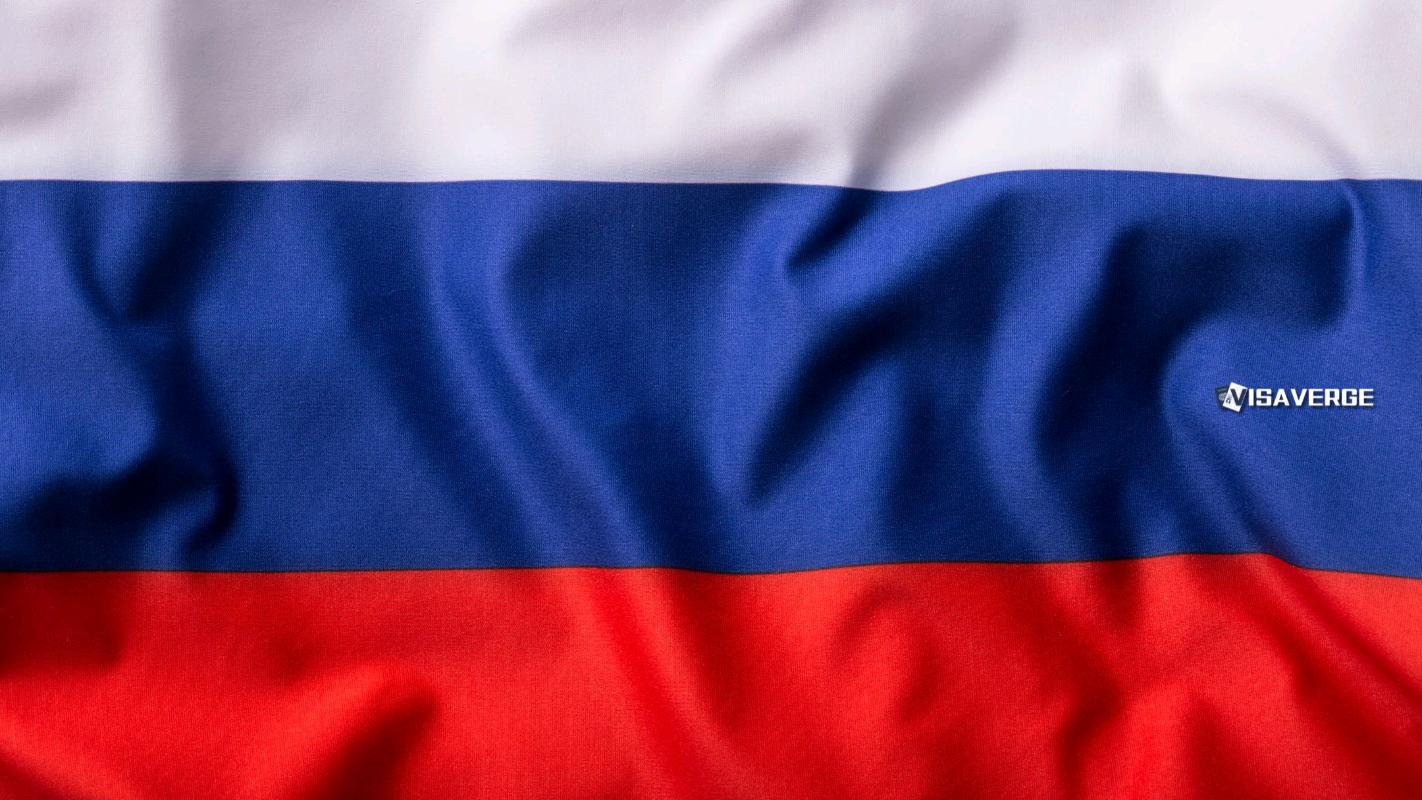
Let’s break down what happened, why it matters, and what it could mean for people connected to Domodedovo Airport and for the future of foreign investment in Russia.
What Happened: The Court’s Ruling and Its Immediate Effects
Who: The main owners of Domodedovo Airport are Dmitry Kamenshchik, a Russian-born businessman who also holds Turkish and UAE citizenships, and Valery Kogan, who was born in Moscow and holds Israeli citizenship. Both controlled the airport through a network of offshore companies.
What: The Moscow Region Arbitration Court ruled that the entire airport, through its parent company DME Holding LLC, must be transferred to the Russian state. The court said the airport’s privatization in the 1990s broke Russian laws because it involved foreign nationals and offshore companies, which is not allowed for strategic assets like airports without government approval.
When: The ruling was issued on June 17, 2025. The court said the transfer of ownership must happen right away.
Where: The case was heard in the Moscow Region Arbitration Court, and the airport itself is located just outside Moscow.
Why: The Russian Prosecutor General’s Office argued that the airport’s owners used offshore companies and foreign citizenships to control a key piece of infrastructure, which is against Russian law. They also accused the owners of moving large sums of money—at least 18 billion rubles ($228 million) between 2021 and 2023—out of Russia, and possibly over 36 billion rubles in total, under the pretense of paying debts or for personal use.
How: The Prosecutor General’s Office investigated the airport’s ownership and financial records, filed a lawsuit in early 2025, and won temporary state control of the airport in February 2025. After court hearings in May, the final ruling came in June.
Background: Why Domodedovo Airport Was Targeted
Domodedovo Airport is not just any airport. It is one of the largest and busiest in Russia, serving millions of passengers each year. Its privatization in the 1990s was always controversial. There were many legal disputes over how the airport was sold, with some saying it was undervalued or acquired illegally. Russian authorities have tried before to remove Kamenshchik and Kogan, especially after a terrorist attack at the airport in 2011, but those efforts failed due to lack of evidence.
Since Russia’s 2022 invasion of Ukraine, the government has started a broad campaign to nationalize what it calls “strategic assets”—companies and infrastructure that are important for the country’s security and economy. This includes not only airports but also companies in food, energy, and other key sectors. The government says this is to protect Russia from foreign influence and to keep important assets under Russian control.
The Legal and Administrative Process: Step by Step
- Investigation: The Prosecutor General’s Office looked into how Domodedovo Airport was privatized and traced its ownership through a web of offshore companies.
- Filing the Lawsuit: In early 2025, the government filed a lawsuit, saying the airport’s privatization broke laws on foreign ownership of strategic assets.
- Temporary State Control: In February 2025, Russia’s civil aviation authority, Rosaviatsia, was given temporary control over the airport’s main services.
- Court Hearings: The main hearings took place in May 2025.
- Final Ruling: On June 17, 2025, the court ordered the immediate transfer of all shares to the Russian state.
Rosaviatsia is now in charge of running the airport, at least for the time being. For more information about Rosaviatsia and its role in Russian civil aviation, you can visit the official Rosaviatsia website.
Who Is Affected: Stakeholders and Their Concerns
Owners: Kamenshchik and Kogan
- Loss of Control: Both men lose all ownership and control over Domodedovo Airport and its subsidiaries.
- Foreign Citizenship: Their use of foreign citizenships and offshore companies was a key reason for the state’s legal action.
- No Official Comment: As of June 17, 2025, neither owner nor the airport’s management has made a public statement.
Employees and Tenants
- Job Security: There have been no official announcements about layoffs or major changes for airport staff. However, with Rosaviatsia now in charge, employees may face new management and possible restructuring.
- Tenants: Businesses that rent space or provide services at the airport may need to renegotiate contracts or adapt to new rules.
Airlines and Passengers
- Flight Operations: So far, there have been no reports of changes to flight schedules or disruptions for travelers. However, future decisions about investments, upgrades, or new routes will now be made by the state.
- Service Quality: Passengers may notice changes in how the airport is managed, depending on how the state runs things compared to private owners.
Foreign Investors
- Increased Risk: The nationalization of Domodedovo Airport sends a strong message to foreign and dual-national investors: the Russian government is willing to take over strategic assets if it believes foreign control is involved.
- Broader Impact: This move is part of a larger trend. Since 2022, Russia has nationalized about 1 trillion rubles worth of strategic assets, including companies like Danone and Carlsberg.
- Investor Confidence: Economic analysts warn that these actions make Russia less attractive for foreign investment, which could hurt the country’s economy in the long run.
Why Nationalization? The Government’s Point of View
Russian officials say the nationalization of Domodedovo Airport is necessary to protect national security and prevent foreign influence over critical infrastructure. They argue that allowing foreign nationals or offshore companies to control key assets could put Russia at risk, especially during times of international tension.
The Prosecutor General’s Office said the airport’s privatization was illegal because it involved foreign citizens and offshore structures without proper government approval. They also pointed to the large sums of money moved out of Russia as evidence that the owners were not acting in the country’s best interest.
Expert Opinions: What Analysts and Observers Are Saying
- Legal Experts: Many see this ruling as part of Russia’s ongoing move toward more state control over the economy, especially since the conflict with Ukraine began. They say the government is using the law to take back assets it considers too important to be left in private or foreign hands.
- Economic Analysts: Some warn that these nationalizations could scare off foreign investors, making it harder for Russia to attract the money and expertise it needs to grow its economy.
- International Observers: Outside Russia, many see the Domodedovo case as part of a wider crackdown on foreign and dual-national ownership in key industries. They worry that similar actions could happen in other sectors, such as energy or food.
As reported by VisaVerge.com, the nationalization of Domodedovo Airport is being closely watched by international business leaders, who see it as a sign that Russia is becoming a much riskier place for foreign investment.
What Happens Next? Future Outlook and Possible Developments
Appeals and Legal Challenges
It is not clear if Kamenshchik and Kogan will try to appeal the court’s decision. The order for immediate execution suggests that their options may be limited, but legal experts say there could still be attempts to challenge the ruling in higher courts.
More Nationalizations?
The Domodedovo case could set a precedent for more state takeovers of assets with foreign ties, especially in sectors like energy, transport, and food. The government’s campaign to nationalize strategic assets shows no sign of slowing down.
Changes at Domodedovo Airport
With Rosaviatsia in charge, there may be changes in how the airport is managed, how contracts are awarded, and how investments are made. Employees and businesses at the airport will need to adapt to new leadership and possibly new rules.
Impact on Foreign Investment
The nationalization is likely to make foreign investors even more cautious about putting money into Russia, especially in sectors the government considers strategic. This could have long-term effects on Russia’s economy and its ability to attract international business.
Key Facts at a Glance
Here’s a summary of the most important details:
| Item | Detail |
|---|---|
| Date of Ruling | June 17, 2025 |
| Asset Value | 1 trillion rubles ($12.7 billion) |
| Owners | Dmitry Kamenshchik (Turkish/UAE), Valery Kogan (Israeli) |
| Accusations | Illegal foreign control, profit transfers, offshore schemes |
| Immediate Effect | 100% shares transferred to Russian state |
| Operational Control | Rosaviatsia (since Feb 2025) |
| Broader Context | Part of post-2022 nationalization campaign |
Practical Guidance for Stakeholders
If you are an employee, tenant, or business partner at Domodedovo Airport, here are some practical steps to consider:
- Stay Informed: Watch for official updates from Rosaviatsia and Domodedovo Airport’s website (domodedovo.ru) for any changes in operations or management.
- Review Contracts: If you have business agreements with the airport, review them to see how a change in ownership might affect your rights and responsibilities.
- Prepare for Change: Be ready for possible changes in management style, rules, or investment priorities as the state takes over.
- Legal Advice: If you are a foreign investor or business partner, consider seeking legal advice about your rights and options under Russian law.
For official information about Russian legal proceedings and government actions, you can visit the Russian Prosecutor General’s Office.
Broader Implications: What This Means for Russia and Beyond
The nationalization of Domodedovo Airport is more than just a change in ownership. It is a clear signal that the Russian government is determined to keep tight control over what it sees as vital parts of the economy, especially when foreign ownership is involved. This move fits into a larger pattern of state takeovers since 2022, affecting not just airports but also food, energy, and other key industries.
For foreign investors, the message is clear: investing in Russian strategic sectors now carries much higher risks. For employees and travelers, the immediate impact may be small, but the long-term effects will depend on how the state manages the airport and whether service quality and investment continue at the same level.
Conclusion
The court’s decision to nationalize Moscow’s Domodedovo Airport is a turning point in Russia’s approach to strategic assets and foreign investment. The immediate transfer of ownership to the state, the loss of control for the airport’s previous owners, and the broader message to foreign investors all point to a new era of economic centralization in Russia. The long-term outcome will depend on how the state manages the airport and whether similar actions follow in other sectors.
For now, all eyes are on Domodedovo Airport as a test case for Russia’s nationalization policy and its impact on the country’s economy, its people, and its place in the global business community.
Learn Today
Nationalization → The process where the government takes ownership and control of private assets or companies.
Rosaviatsia → Russia’s civil aviation authority currently managing Domodedovo Airport after state takeover in 2025.
Offshore Companies → Firms registered outside a country to reduce taxes or hide ownership, often raising legal concerns.
Strategic Assets → Critical infrastructure or companies important for national security and economy, restricted from foreign control.
Arbitration Court → A specialized court resolving business disputes, including cases like Domodedovo Airport’s nationalization.
This Article in a Nutshell
The Moscow Region Arbitration Court nationalized Domodedovo Airport on June 17, 2025, citing illegal foreign ownership. Rosaviatsia took immediate control, marking Russia’s broader push to reclaim strategic assets amid concerns from foreign investors about economic risks.
— By VisaVerge.com


